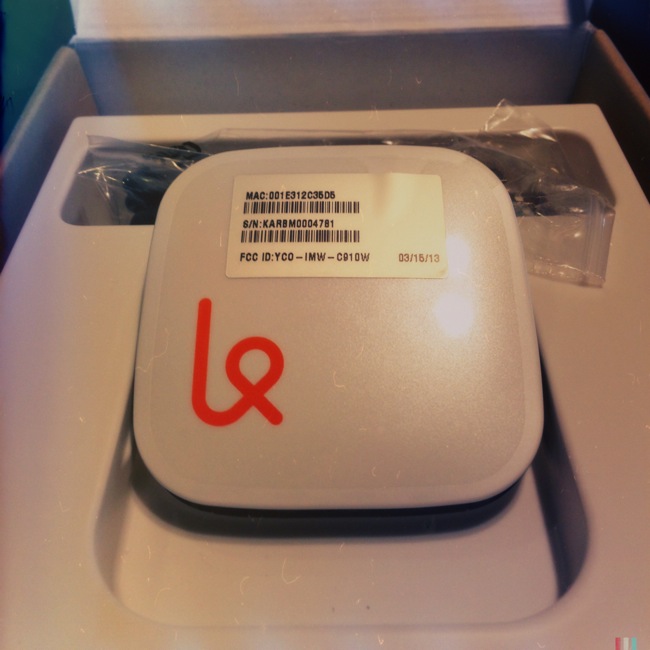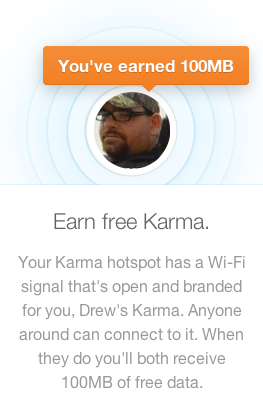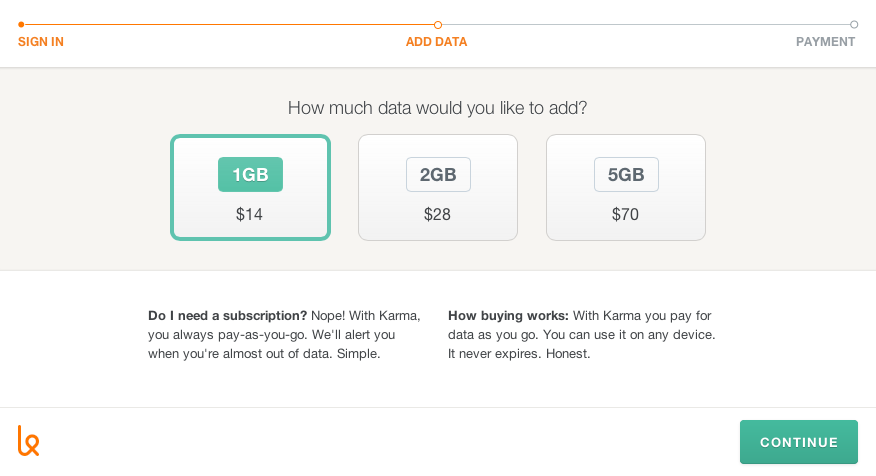 The Karma Wi-Fi hotspot arrives with just a USB power cable and the hotspot itself.
The Karma Wi-Fi hotspot arrives with just a USB power cable and the hotspot itself.
 Today I recieved a new 4G wi-fi hotspot with an interesting twist from the folks at Karma Mobility. Karma has an interesting business model. You buy the hotspot for $79US, and the first time you connect you get 100MB free data, which can be linked using your Facebook account. From then on, you can buy pay-as-you-go bandwidth for $14US/GB.
Today I recieved a new 4G wi-fi hotspot with an interesting twist from the folks at Karma Mobility. Karma has an interesting business model. You buy the hotspot for $79US, and the first time you connect you get 100MB free data, which can be linked using your Facebook account. From then on, you can buy pay-as-you-go bandwidth for $14US/GB.
The twist is that you cannot secure your hotspot. Anyone within range can connect, and when they do THEY get 100MB of free data, and you get 100MB of additional data added to your account for providing their access. Karma is banking on the fact that people will start to recognize the Karma brand, and buy additional bandwidth when they need it and are connected to Karma hotspots in airports and at public gatherings. I'm guessing it will work. A hotspot with a familiar branding is more likely to get connections than one that is broadcasting a name like "ID10T B0X" or "D-Link". And knowing that if they connect they will get 100MB of free data to check email or download a new book on their Kindle Fire before catching that flight makes it a no brainer for the consumer.
I averaged 8.17Mbps download and 1.29Mbps upload in my testing. Not stellar speeds but certainly usable for checking email and small downloads. And that is what the Karma is for, not streaming TV shows from Netflix or downloading torrents. For free bandwidth, that isn't bad at all.
 You can buy extra bandwidth if you need it, and it never expires.
You can buy extra bandwidth if you need it, and it never expires.
My good friend at Oregon City Computers asked a question and I checked to verify regarding security. His concern was that the owner of the hotspot would be on the hook if someone who connected to it was doing something illegal using the connection. I checked, and because the Radius server at Karma handles authentication, the IP address is assigned there rather than using Network Address Translation (NAT) in the device itself. In other words, unlike your home Wi-Fi, Karma assigns the IP adress to your device, not the local hotspot that I own.
